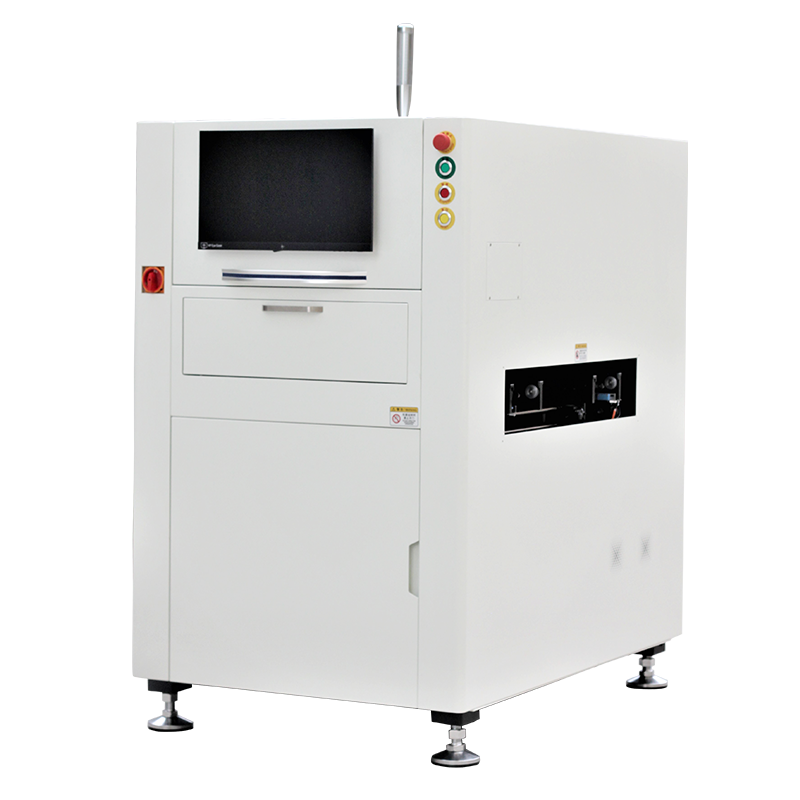Error de formato de correo electrónico
emailCannotEmpty
emailDoesExist
pwdLetterLimtTip
inconsistentPwd
pwdLetterLimtTip
inconsistentPwd


Enhancing Quality Assurance: The Importance of AOI Testing Equipment in Manufacturing
In the world of manufacturing, ensuring the highest quality of products is crucial for success. To achieve this, advanced technologies and equipment are utilized, and one such essential tool is AOI (Automated Optical Inspection) Testing Equipment. In this blog post, we will explore the significance of AOI Testing Equipment in manufacturing processes. From understanding its capabilities and benefits to its impact on product quality and efficiency, we delve into the role of AOI Testing Equipment and its contribution to enhancing quality assurance.
AOI Testing Equipment is a sophisticated technology used to inspect electronic components, printed circuit boards (PCBs), and other manufactured products. It utilizes optical imaging and advanced algorithms to detect defects, inconsistencies, and errors in the manufacturing process. By automatically scanning and analyzing components, AOI Testing Equipment ensures accuracy, reliability, and consistency in production.
2. Identifying Defects and Inconsistencies:
One of the primary functions of AOI Testing Equipment is to identify defects and inconsistencies that may occur during the manufacturing process. It can detect issues such as misalignment, missing components, soldering defects, and incorrect polarity. By pinpointing these problems, manufacturers can take immediate corrective actions, reducing the risk of faulty products reaching the market.
3. Improving Product Quality and Reliability:
AOI Testing Equipment plays a vital role in improving product quality and reliability. By detecting defects and inconsistencies at an early stage, manufacturers can address issues promptly, resulting in higher-quality products. The automated and precise nature of AOI Testing Equipment ensures that even minor defects or deviations from specifications are identified, leading to more reliable and durable end products.
4. Enhancing Efficiency and Cost Savings:
Integrating AOI Testing Equipment into the manufacturing process can significantly enhance efficiency and cost savings. By automating the inspection process, it reduces the reliance on manual labor, resulting in faster and more consistent inspections. AOI Testing Equipment can scan a large number of components or PCBs within a short period, minimizing production time and optimizing overall workflow. Additionally, by detecting defects early, it reduces the costs associated with rework, repair, or product recalls.
5. Real-time Data and Analytics:
AOI Testing Equipment provides manufacturers with real-time data and analytics, enabling them to monitor and improve production processes continuously. The equipment generates detailed reports on inspection results, allowing manufacturers to identify trends, analyze patterns, and make data-driven decisions. By leveraging this information, manufacturers can implement process improvements, refine quality control measures, and enhance overall manufacturing efficiency.
6. Compliance with Industry Standards:
AOI Testing Equipment helps manufacturers comply with industry standards and regulations. It ensures that products meet the required specifications and quality criteria set by regulatory bodies and customers. By incorporating AOI Testing Equipment into the manufacturing process, manufacturers can demonstrate their commitment to quality assurance and meet the stringent requirements of their target markets.

Conclusion:
AOI Testing Equipment has become an indispensable tool in the manufacturing industry, providing manufacturers with the means to ensure product quality, reliability, and efficiency. By leveraging the capabilities of AOI Testing Equipment, manufacturers can detect defects, improve production processes, enhance efficiency, and meet industry standards. Embracing this advanced technology strengthens quality assurance efforts, instills customer confidence, and positions manufacturers for long-term success in a competitive market.


